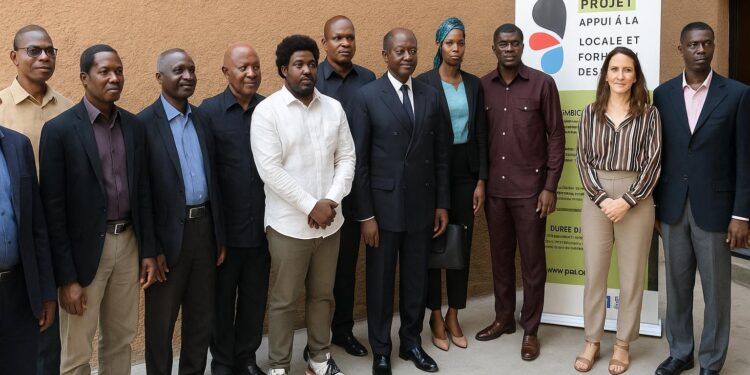Brazzaville sets stage for bottom-up planning
Inside a modest conference hall near the Congo River, thirty local officials and civic organisers spent 11 July 2025 debating how to translate electoral pledges into street-level progress for neighbourhoods stretching from Bacongo to remote districts.
The workshop, convened by the Centre d’actions pour le développement, is part of a two-year programme financed by the United Nations Democracy Fund, designed to strengthen planning skills in all 12 departments.
Organisers emphasised that effective decentralisation, a policy endorsed by President Denis Sassou Nguesso since the 2003 constitutional revisions, depends on tailoring budgets to the aspirations voiced in village assemblies and urban wards.
A convergence of civil voices and elected leaders
Representatives of women’s associations, youth entrepreneurs and the Brazzaville prefecture shared tables, scrutinising sample community action plans already trialled in Plateaux and Niari, where early pilots have channelled micro-grants toward rural bridges and school roofs.
Guerschom Gobouang, who leads CAD’s campaign and advocacy programme, told participants that citizens must “own the diagnostic” instead of waiting for ministries to draft blueprints from afar.
Municipal councillors present described the exercise as a chance to align hometown priorities with the 2022–2026 National Development Plan, the government’s overarching roadmap that targets 4 percent annual growth (Ministry of Planning data).
Civil society speakers highlighted that Congo’s youthful demographic—nearly 60 percent under 25—makes participatory planning more urgent, because young citizens increasingly use social media to query spending decisions and expect rapid, transparent feedback.
Rethinking the top-down orthodoxy
Traditional summit-basis models, whereby central experts cascade projects downward, often misread village realities, Gobouang argued, citing CAD field surveys showing that only one in five households had been consulted before work started on several boreholes.
World Bank studies on sub-Saharan decentralisation echo that finding, noting that participatory design reduces cost overruns by up to 15 percent (World Bank, 2023).
During a simulated exercise, groups mapped assets such as markets, feeder roads and mangrove stands before ranking priorities through a voting matrix.
The result, facilitators said, is not a wish list but a disciplined logframe that lists responsibilities, timelines and gender-sensitive indicators, compatible with the performance contracts required by Congo-Brazzaville’s Ministry of Finance.
Academic observers from Marien Ngouabi University told the workshop that inclusive planning also mitigates conflict, referencing research showing communal dialogues in Cuvette had reduced land disputes between farmers and herders by 28 percent over three years.
International backing and national alignment
The United Nations Democracy Fund contributes 300,000 dollars to the initiative, while technical guidance comes from the UN Development Programme office in Brazzaville, which already supports digital mapping of communal assets across the Pool region.
Diplomats from the European Union and the Japanese embassy attended as observers, describing the exercise as complementary to their own capacity-building portfolios.
National authorities view the project as a timely complement to the ongoing fiscal decentralisation law, adopted in 2022, that progressively transfers 15 percent of national revenue to local governments.
Speaking by telephone, a senior official at the Ministry of Decentralisation said the government welcomes “evidence-based tools that allow mayors to justify projects before Parliament’s budget committee”.
Private investors are also attentive; the oil major TotalEnergies has funded a feasibility study on linking local infrastructure plans to corporate social responsibility pipelines, seeking to leverage community input for smoother project execution.
What diplomats will watch in 2025
Over the next six months, trainees will finalise ten local development plans covering neighbourhoods home to nearly 400,000 residents, then submit them to elected councils for adoption.
Success will be measured against clear milestones: publication of the plans online, allocation of co-funding in municipal budgets, and periodic citizen scorecards, a mechanism endorsed in other Central African capitals.
For foreign observers, progress in Congo-Brazzaville’s decentralisation is a bellwether for regional stability; for citizens, it is the promise that their voices echo not only in polling stations but in each budget line.
The CAD team plans a closing forum in 2025 to present lessons learned to Parliament and the Economic and Social Council, ensuring that local innovations inform national policy revisions slated for the post-2026 planning cycle.












































